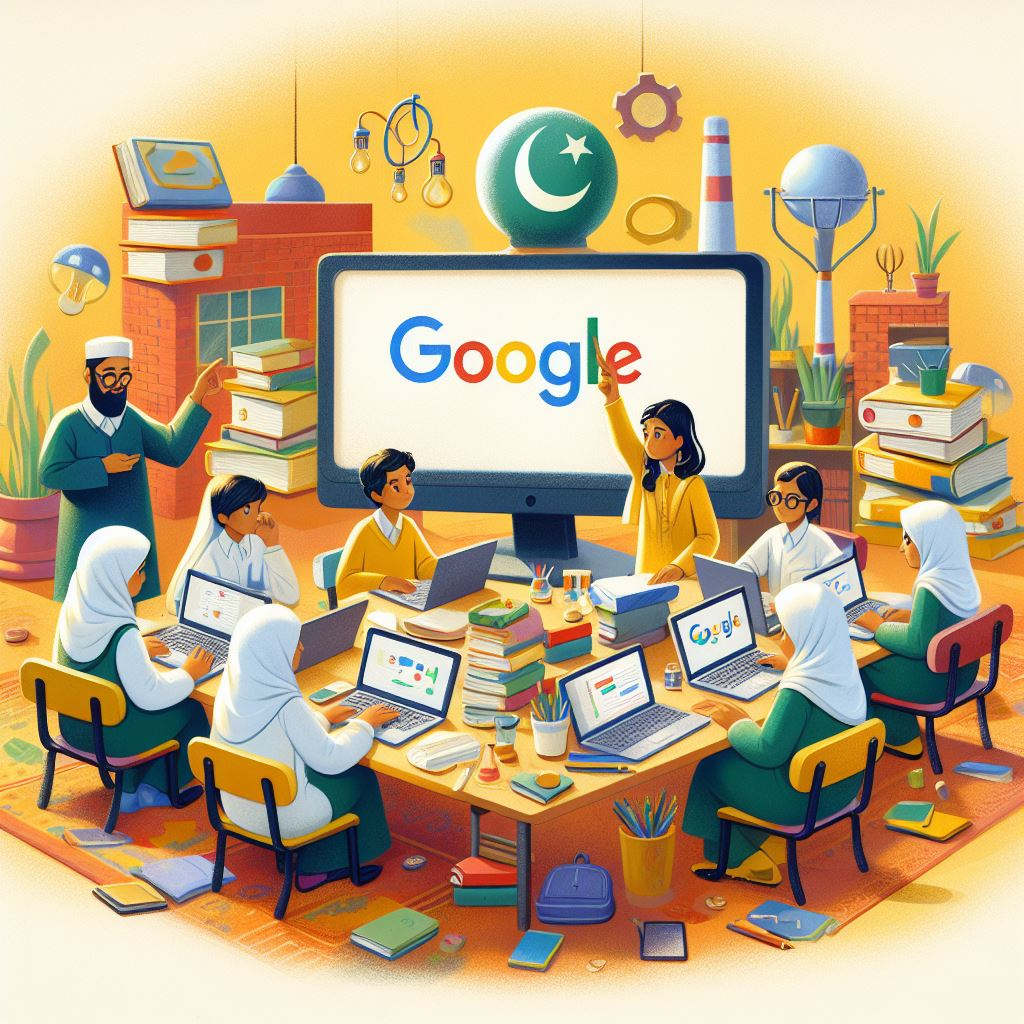The Google for Education team, in collaboration with their local partner Tech Valley Pakistan, met with Minister of State for IT and Telecommunication in her office on Thursday.
In a significant development aimed at enhancing educational opportunities for out-of-school children in Pakistan, the Google for Education team, in collaboration with their local partner Tech Valley Pakistan, met with the Minister of State for IT and Telecommunication, Shaza Fatima Khawaja, in her office on Thursday.
The delegation, comprising Paul Hutchings, Regional Head of Google for Education; Tim Paolini, Special Projects, APAC; Harris Suffian, Education Lead for Pakistan; and Umar Farooq, CEO of Tech Valley, engaged in discussions centered around equipping underprivileged children with the necessary tools for learning.
With a focus on bridging the educational gap and ensuring universal access to quality education in Pakistan, Google for Education’s upcoming initiatives, including the deployment of educational tools and Chromebooks, were highlighted during the meeting.
Minister Shaza Fatima Khawaja emphasized the government’s commitment to transforming Pakistan into an export hub, with a multifaceted approach that encompasses not only manufacturing but also knowledge transfer.
“In line with our vision for national development, the government is dedicated to facilitating the growth of Pakistan’s export capacity in human resources, services, and technology,” stated Minister Khawaja.
The collaborative efforts between Google for Education and Tech Valley Pakistan signify a step forward in leveraging technology to address educational challenges and foster inclusive learning environments across the country.
This strategic partnership underscores the importance of public-private cooperation in advancing educational agendas and empowering marginalized communities through innovative solutions.
As part of its broader mission, Google for Education aims to support educational institutions and learners in Pakistan by providing access to digital tools and resources that promote skill development, critical thinking, and creativity.
The meeting concluded with a mutual commitment to further collaboration and the implementation of initiatives geared towards enhancing educational outcomes and opportunities for all segments of society.
In the wake of this meeting, stakeholders are optimistic about the transformative potential of technology-driven educational interventions in Pakistan, paving the way for a more inclusive and equitable learning landscape.
